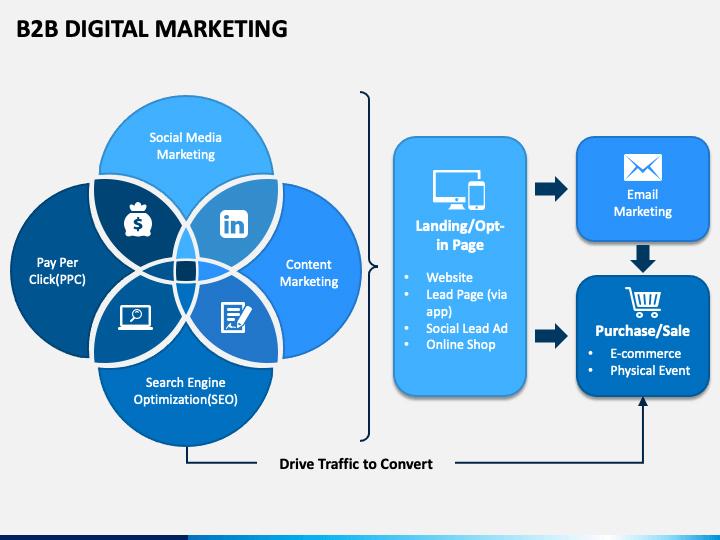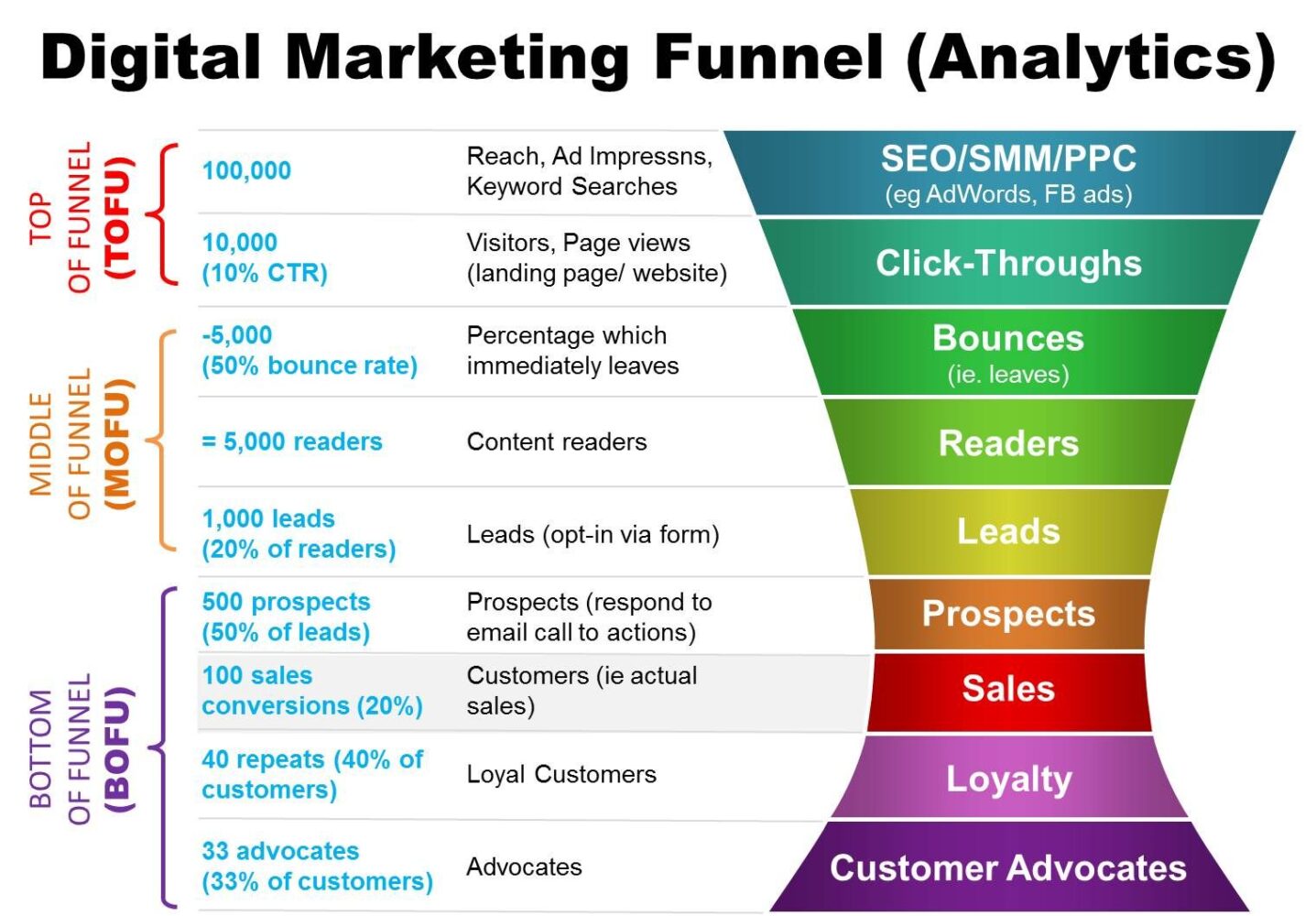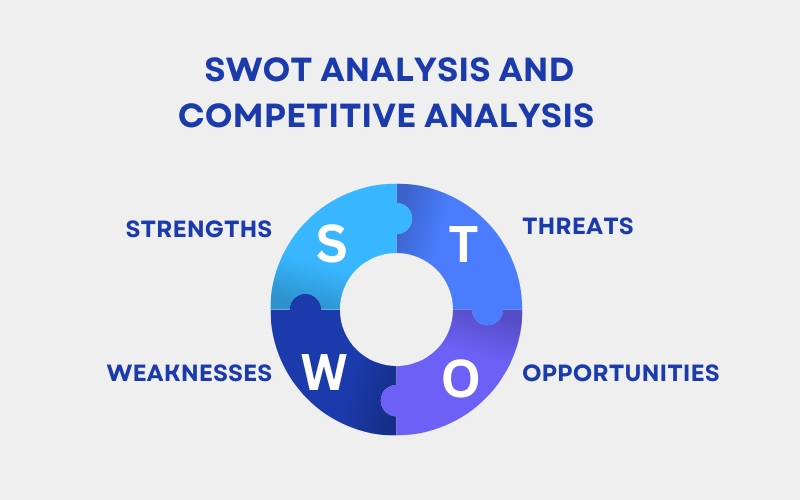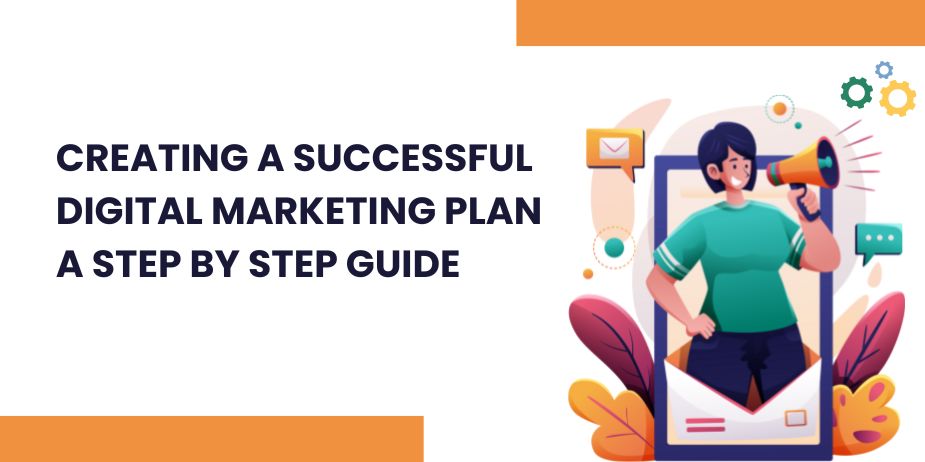Digital Marketing Plan With Digital Marketer Expert
The first step to creating a successful digital marketing plan is to define your goals. What do you want to achieve with your online presence? Is it to generate leads, increase brand awareness, or drive sales? Defining your goals will help you create a focused and effective digital marketing plan.
Are you looking for a step-by-step guide to creating a successful Digital marketing plan? Here we will provide you with a step-by-step guide on how to create a successful digital marketing plan. We understand that digital marketing is an essential aspect of running a successful business, and it is important that you create a plan that works for you.
We will also offer tips and advice to ensure that your digital marketing strategy is effective and successful. By the end of this blog, you will have a better understanding of how to create a successful digital marketing plan and be well on your way to achieving your business objectives. With the ever-changing landscape of digital marketing, it is important to stay up to date with the latest trends and best practices. B2B digital marketing is also crucial because it helps you improve your business.
We will discuss the best methods for researching your target audience, building a strategy that works for your business, and creating content that resonates with your customers. We will also provide you with best practices for running campaigns, analyzing your results, and search engine optimization which involves backlinks and guest posts. By the end of this blog, you will understand the fundamentals of creating a successful digital marketing plan and be on the path to achieving your business goals.
B2B Digital Marketing: What is it and why is it important?
Digital marketing is the process that involves different digital channels (e.g. website, email, social media, search engines, mobile apps) to reach and engage customers. It is an effective way to reach potential customers and existing customers. It also helps businesses stay competitive in the digital age.
Digital marketing is important because it helps businesses reach a larger audience, generate more leads, find a digital marketing company near me and increase sales. It also helps businesses build relationships with customers, build brand awareness, and improve customer service.
Research to identify your target audience is the first step in a well-thought-out marketing strategy. Additionally, having a clear target audience enables you to better understand your audience’s needs and prepare timely product launches.
Digital marketing also provides a way to measure success, track ROI, and identify areas of improvement. This helps businesses make informed decisions about their marketing strategies and improve their overall performance.
Overall, digital marketing is an integral part of any modern business. It can help to reach digital marketing companies near me, increase sales, build a brand, b2b digital marketing, and improve customer service. It also helps businesses stay competitive in the digital age.

Overview of the Digital Marketing Funnel: Understanding the Digital Consumer Journey
- Identifying Your Target Audience
- Mapping the Digital Consumer Journey
- Identifying Touchpoints Along the Journey
- Leveraging User Behaviors and Intent
- Understanding Digital Channels and Platforms
- Evaluating Digital Experiences
- Optimizing Your Digital Funnel
- Crafting Digital Content
- Testing and Measuring Your Digital Funnel
- Leveraging Automation Technologies
- Analyzing and Reporting on Digital Funnel Data
- Optimizing Your Digital Funnel Strategies
- Utilizing Data-Driven Insights
- Developing Cross-Channel Strategies
- Utilizing A/B Testing Strategies
- Integrating Online and Offline Experiences
- Implementing Advanced Personalization Techniques
- Creating Relevant and Engaging Experiences
- Establishing Effective Lead Nurturing Strategies
- Developing Retargeting Campaigns
- Creating Seamless Omni channel Experiences
- Analyzing and Understanding Consumer Journey Metrics

SEO & Guest Post
Making a page in a search engine easier to reach compared to other similar websites is what this method entails. An extremely prosperous business will eventually result from a successful search engine optimization effort. Inherent SEO procedures like guest posting and content marketing need to be carefully tended to develop a relevant and effective SEO aim.
01: Setting Objectives & Strategies
-
Identify your target market:
Determine who your target customers are, where they’re located, and what they need.
-
Set goals:
Establish specific and measurable objectives that align with your business objectives.
-
Determine the budget:
Estimate the costs of implementing your digital marketing plan, including personnel, advertising, and technology.
-
Choose the right digital marketing strategies:
Determine the right mix of expert digital marketing strategies for your business goals. Consider SEO, content marketing, PPC, email marketing, social media marketing, webinars, online advertising, etc.
-
Analyze the competition:
Research what your competitors are doing and identify any potential gaps in the market.
-
Implement the plan:
Develop a timeline, assign roles, and monitor the progress of your plan.
-
Track and measure:
Set up tracking mechanisms to measure the success and effectiveness of your efforts. Monitor key performance indicators (KPIs) to ensure that objectives are being met.
-
Adjust and refine:
Reevaluate your strategy based on results and adjust as needed
02: Creating & Implementing Your Digital Marketing Plan
-
Identifying Your Target Audience:
You must determine who your target audience is and what their needs are before you create your digital marketing plan.
-
Determining Your Goals:
You must determine what your overall goals are in creating a digital marketing plan. Are you looking to increase brand awareness? Increase website traffic? Generate leads?
-
Assessing Your Budget:
You must assess your budget and determine how much money you can allocate to your digital marketing efforts.
-
Choosing Your Channels:
You must determine which digital channels will be best to use to reach and engage with your target audience.
-
Developing Your Strategy:
You must create a strategy for your digital marketing plan, including the tactics and tools you will use to reach your goals.
-
Setting Your KPIs:
You must set key performance indicators (KPIs) to measure the success of your digital marketing plan is here.
-
Executing Your Plan:
You must execute your plan to achieve your desired results.
-
Monitoring & Analyzing Results:
You must monitor and analyze the results of your digital marketing plan to make adjustments as needed.
03: SWOT Analysis and competitive analysis
It’s crucial to be sincere with yourself and ask the correct questions when performing a SWOT analysis.
You need to choose the correct team members if you want to ask the right questions. To fully understand your goals, your team should be made up of individuals with a range of skills in their respective fields.
Don’t merely assemble a group of individuals who always agree. People with distinct viewpoints will make observations that might otherwise go overlooked. The four components of SWOT, or Strengths, Weaknesses, Opportunities, and Threats, can then be used to guide your inquiries. Here is an illustration of how it appears.

To perform an effective competitive analysis, think about following the tips below:
Do investigation
Considerable studies should be conducted before performing an analysis. You can use research to not only support your claims with proof, but it can also reveal new ideas to you. The results of your research may also reveal how your rivals may approach a certain issue. List the differences and similarities in your list.
A thorough inventory of the similarities and differences between two things is necessary when doing a comparative analysis. Consider the potential effects of changing one thing on another. For instance, how a higher vacation policy may impact revenue, output, or expenses.
Conduct Regular Analysis
Any business practice should include comparative studies. Consider the various topics and elements a comparative analysis examines:
- Competitors\Inventory
- How well do stocks perform
- Financial standing
- Profitability
- Revenue and dividends
- Research and development sales
04: Measuring & Analyzing Your Results
Set Up Tracking and Measurement: Before you can measure your results, you need to ensure that you have the right tracking and measurement tools in place. This will include things like setting up analytics, setting up conversion tracking, and setting up goals.
Creating a successful digital marketing plan isn’t something you can do overnight. It takes time, planning, research, and implementation. However, once you have a comprehensive plan in place, you’ll be able to market your business more effectively, reach more customers, and ultimately, increase sales and revenue. By following the steps outlined in this guide, you’ll be on your way to creating a successful digital marketing plan that will help you reach your business goals.
Conclusion
To sum up, digital marketing is a strategy for selling and promoting a brand through digital media, particularly with the use of online tools. The best thing about digital marketing is that it provides a wealth of resources for an immediate analysis of the effects of every sector of the industry. Additionally, there is a way for a vendor to discover complete statistics of the results if they use Google AdSense.
Creating a successful digital marketing plan requires a lot of forward-thinking and planning. B2B digital marketing is also important because that helps you understand the marketing process and how to expand your business. By following the steps outlined above, you can ensure that you create a comprehensive and successful plan that will help your business grow. With a well-thought-out plan and an effective strategy, you can make the most of the digital marketing opportunities available.
FAQ
What is Digital Marketing?
Digital marketing refers to the practice of promoting and advertising products or services using digital technologies such as the internet, social media, search engines, mobile devices, and other digital channels. It involves creating, executing, and managing marketing campaigns across multiple digital channels to reach and engage with potential customers. Some of the most important aspects of digital marketing include search engine optimization (SEO), content marketing, social media marketing, email marketing, and pay-per-click advertising.
The three most important things to know about digital marketing are:
- Digital marketing offers a wide range of opportunities to connect with potential customers using various channels and platforms.
- Effective digital marketing requires a deep understanding of the target audience and their behavior.
- Measuring and analyzing data is crucial to the success of any digital marketing campaign.
What are the Benefits of Digital Marketing?
Digital marketing offers numerous benefits for businesses of all sizes. Some of the most significant benefits include:
- Increased brand awareness and visibility: With trending digital marketing plans, businesses can reach a larger audience and increase their brand awareness by using various digital channels.
- Targeted marketing: Digital marketing allows businesses to target specific audiences based on their demographics, interests, and behaviors, which can result in higher conversion rates.
- Cost-effective: Digital marketing is often more cost-effective than traditional marketing methods such as print or TV ads.
The three most important benefits of digital marketing are:
- Increased brand awareness and visibility
- Targeted marketing
- Cost-effectiveness
What is Search Engine Optimization (SEO)?
Search engine optimization (SEO) is the practice of optimizing websites and their content to improve their visibility and ranking in search engine results pages (SERPs). SEO involves a wide range of techniques, including keyword research, on-page optimization, link building, and technical SEO. The ultimate goal of SEO is to drive organic traffic to a website, increase its visibility, and improve its ranking on search engines such as Google, Bing, and Yahoo.
The three most important things to know about SEO are:
- SEO is a long-term strategy that requires consistent effort and ongoing optimization.
- Keyword research is crucial for identifying the most relevant keywords and phrases that potential customers use to search for products or services.
- Quality content is essential for SEO, and it should be informative, engaging, and relevant to the target audience.
What is Pay-Per-Click (PPC) Advertising?
Pay-per-click (PPC) advertising is a form of plan for digital marketing where advertisers pay a fee every time a user clicks on one of their ads. PPC ads are typically displayed at the top of search engine results pages or on social media platforms, and advertisers can target specific audiences based on their demographics, interests, and behaviors. Some of the most popular PPC advertising platforms include Google Ads, Bing Ads, and Facebook Ads.
The three most important things to know about PPC advertising are:
- PPC advertising is a cost-effective way to reach a targeted audience and drive traffic to a website.
- Advertisers can control their advertising budget and only pay for clicks or impressions.
- Effective PPC advertising requires ongoing optimization and testing to maximize results.
What is Content Marketing?
Content marketing is a digital marketing strategy that involves creating and distributing valuable and relevant content to attract and engage a target audience. The goal of content marketing is to build brand awareness, establish authority, and ultimately drive profitable customer action. Content marketing can take many forms, including blog posts, articles, videos, podcasts, infographics, and social media posts.
For more information and free consultation, please contact us at info@webdecorum.com or by click here.




